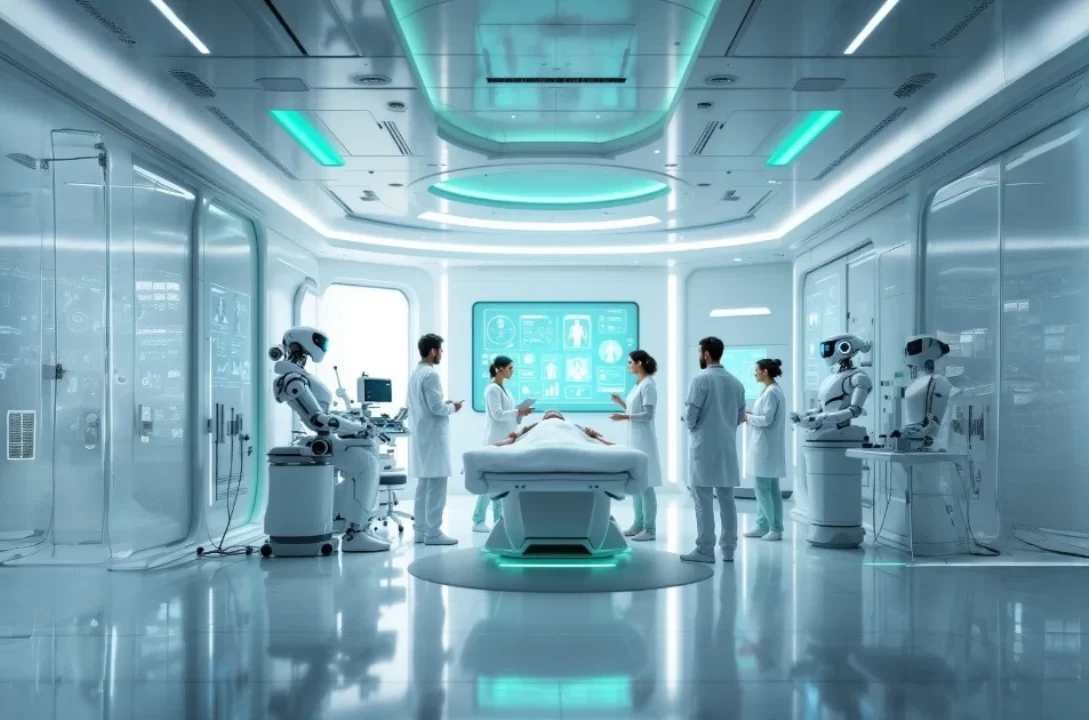The healthcare industry is undergoing a seismic shift, driven by groundbreaking innovations that promise to revolutionize patient care, improve outcomes, and streamline hospital operations. From precision medicine to robotic surgery, these advancements are not just futuristic concepts—they’re already making their way into hospitals near you.
In this article, we’ll explore the most exciting healthcare innovations set to transform the way we receive and deliver medical care. Whether you’re a patient, healthcare professional, or simply curious about the future of medicine, this guide will keep you informed and inspired.
The Rise of Precision Medicine
Precision medicine is redefining how we approach treatment by tailoring medical care to individual patients. Unlike traditional one-size-fits-all methods, precision medicine considers factors like genetics, lifestyle, and environment to create personalized treatment plans.
- Genomic Testing: Identifies genetic mutations that influence disease risk and treatment response.
- Targeted Therapies: Uses drugs designed to target specific molecular pathways in diseases like cancer.
- Predictive Analytics: Leverages data to predict disease progression and optimize treatment strategies.
Robotic Surgery: Precision at Its Best
Robotic surgery is no longer science fiction—it’s a reality in operating rooms worldwide. These systems enhance a surgeon’s capabilities, offering unparalleled precision and control.
- Minimally Invasive Procedures: Reduces recovery time and minimizes scarring.
- Enhanced Visualization: Provides 3D views of the surgical site for greater accuracy.
- Remote Surgery: Enables surgeons to perform procedures from miles away using advanced robotics.
Telemedicine: Healthcare at Your Fingertips
Telemedicine has exploded in popularity, offering convenient access to healthcare services from the comfort of home.
- Virtual Consultations: Connect with doctors via video calls for diagnoses and follow-ups.
- Remote Monitoring: Track chronic conditions like diabetes or hypertension using wearable devices.
- Mental Health Support: Access therapy and counseling services online.
Artificial Organs and 3D Bioprinting
The shortage of donor organs has long been a challenge, but artificial organs and 3D bioprinting are offering hope.
- 3D-Printed Organs: Creates functional tissues and organs using bio-inks and patient-specific designs.
- Wearable Artificial Organs: Provides temporary support for patients awaiting transplants.
- Regenerative Medicine: Stimulates the body’s ability to heal itself using bioengineered tissues.
Advanced Imaging and Diagnostics
Modern imaging technologies are transforming diagnostics, enabling earlier and more accurate detection of diseases.
- AI-Enhanced Imaging: Improves the accuracy of radiology reports by identifying subtle abnormalities.
- Molecular Imaging: Visualizes cellular processes to detect diseases at their earliest stages.
- Portable Devices: Brings diagnostic capabilities to remote and underserved areas.
Smart Hospitals: The Future of Healthcare Facilities
Hospitals are becoming smarter, integrating technology to enhance patient care and operational efficiency.
- IoT Devices: Monitors patient vitals in real time and alerts staff to potential issues.
- Automated Workflows: Streamlines administrative tasks, freeing up staff to focus on patient care.
- Energy-Efficient Designs: Reduces environmental impact while lowering operational costs.
Wearable Health Technology
Wearable devices are empowering patients to take control of their health by providing real-time data and insights.
- Fitness Trackers: Monitors physical activity, heart rate, and sleep patterns.
- Medical-Grade Wearables: Tracks conditions like arrhythmias or glucose levels.
- Early Warning Systems: Alerts users to potential health issues before they become critical.
Nanomedicine: Tiny Solutions for Big Problems
Nanotechnology is making waves in healthcare, offering innovative solutions at the molecular level.
- Targeted Drug Delivery: Delivers medications directly to diseased cells, minimizing side effects.
- Cancer Treatment: Uses nanoparticles to destroy cancer cells while sparing healthy tissue.
- Diagnostic Tools: Detects diseases at the molecular level for earlier intervention.
The Role of Big Data in Healthcare
Big data is revolutionizing healthcare by providing insights that drive better decision-making and patient outcomes.
- Population Health Management: Identifies trends and risk factors to improve public health.
- Clinical Research: Accelerates drug development and treatment discovery.
- Personalized Care: Uses patient data to tailor treatments and predict outcomes.
FAQs
1. What is precision medicine, and how does it work?
Precision medicine tailors treatments to individual patients based on their genetic makeup, lifestyle, and environment, improving effectiveness and reducing side effects.
2. Are robotic surgeries safe?
Yes, robotic surgeries are highly safe and effective, offering greater precision and faster recovery times compared to traditional methods.
3. How does telemedicine benefit patients?
Telemedicine provides convenient access to healthcare, reduces travel time, and enables continuous monitoring of chronic conditions.
4. What are the ethical concerns around 3D-printed organs?
Ethical concerns include ensuring equitable access, addressing potential misuse, and navigating regulatory challenges.
5. How can wearable technology improve healthcare?
Wearable technology empowers patients to monitor their health in real time, enabling early detection and prevention of potential issues.
Conclusion
The future of healthcare is here, and it’s more exciting than ever. From precision medicine and robotic surgery to telemedicine and wearable technology, these innovations are transforming hospitals and improving patient outcomes.
As these advancements become more widespread, they promise to make healthcare more personalized, accessible, and efficient. Stay informed about these developments and embrace the opportunities they bring. The next time you visit a hospital, you might just experience the future of medicine firsthand.
Useful Links:















